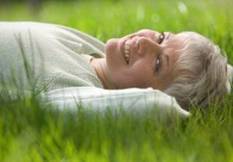Women's Care
Every woman deserves
to thrive. That means handling stress, getting good women's
health care, and nurturing yourself. Our clinic specializes
in women’s health and offers time-tested as well as modern ways
to improve and maintain women’s well-being.
PMS-related problems/menstrual irregularities.
Mood swings, tender
breasts, a swollen abdomen, food cravings, fatigue, irritability
and depression. If you experience some or all of these problems
in the days before your monthly period, you may have premenstrual
syndrome (PMS).
 An estimated three of every four
menstruating women experience some form of premenstrual syndrome.
These problems are more likely to trouble women between their
late 20s and early 40s, and they tend to recur in a predictable
pattern. Yet the physical and emotional changes you experience
with premenstrual syndrome may be more or less intense with
each menstrual cycle.
An estimated three of every four
menstruating women experience some form of premenstrual syndrome.
These problems are more likely to trouble women between their
late 20s and early 40s, and they tend to recur in a predictable
pattern. Yet the physical and emotional changes you experience
with premenstrual syndrome may be more or less intense with
each menstrual cycle.
For many women the signs and symptoms
of premenstrual syndrome are an uncomfortable and unwelcome
part of their monthly menstrual cycle. The most common physical
and emotional signs and symptoms associated with premenstrual
syndrome include:
- Weight gain from fluid retention
- Abdominal bloating
- Breast tenderness
- Tension or anxiety
- Depressed mood
- Crying spells
- Mood swings and irritability or anger
- Appetite changes and food cravings
- Insomnia
- Joint or muscle pain
- Headaches
- Fatigue
In 2-5 % of women
with PMS, symptoms are so severe that they are considered disabling
and this condition is named Premenstrual Dysphoric Disorder
(PMDD).
Many women think that they just
have to “live with it” when it comes to the problems
with their menstrual cycle. But nothing could be further from
the truth. A woman does not have to have painful periods, endure
heavy bleeding, emotional disturbances or any other problem
related to her menstrual cycle.
In 1997, the National Institute
of Health (NIH) issued a consensus report that suggested acupuncture
is effective in the treatment of menstrual cramps, and other
symptoms associated with PMS.
Acupuncture is extremely effective
at regulating a woman’s cycle. Regular acupuncture and
herbal treatment is helpful in balancing female hormonal function
and the autonomic nervous system, and is effective for the long-term
management of PMS, dys- or amenorrhea, excessive menstrual bleeding
(menorrhagia) and metrorrhagia (bleeding in between periods),
endometriosis, uterine fibroids or polycystic ovary syndrome
(PCOS).
Acupuncture and Menopause.
Menopause signifies
“a change” within a woman’s life. This is
a natural, physiological cycle that occurs in all women and
it happens because a woman’s body chemistry is shifting.
It is not a disease. Menopause is a transition. Menopause symptoms
result from unbalanced hormones during this transition.
Lately there has been increased
reports of dangers and inefficiency of Hormone Replacement Therapy
(HRT) in an around menopause. Recent reports state that a large
Federal study of HRT in post-menopausal women was abruptly halted
because of an increased risk of invasive breast cancer. Uterine
cancer has been an acknowledged risk for years. The previously
touted reasons for taking HRT, i.e., an overall improvement
in women's health that would include reduced risk of heart disease,
prevention of osteoporosis and Alzheimer's disease, have all
recently been called into question. Indeed, studies have shown
that while there is no decrease in heart attacks, there is an
increased risk of thromboembolism (blood clots and strokes).
There is also an increased risk (48% higher than the general
population) of gallbladder disease requiring surgery.
While menopause sometimes is viewed
as a disease in Western Medicine, this transitional time for
women is viewed very differently in TCM. When a woman is finished
with her child bearing years, to conserve the woman's Qi (life
force energy), the body shuts down the monthly preparation of
the uterus and the subsequent shedding of blood when a pregnancy
does not ensue, thus allowing the woman to retain all of her
resources for herself as she ages. This transition should be
relatively uneventful - and in the East, be it because of diet
or lifestyle, it often is.
Instead of simply trying to replace
estrogen and prevent a natural process from happening, Oriental
Medicine offers women a way to allow this transition happen
smoothly and to bring about a new balance to hormonal levels
in a next period of women’s lives.
Acupuncture and Oriental Medicine
offer a safe, natural and effective way to address menopause.
Treatment supports women’s body, providing physical and
emotional health, and allows living longer and happier.

|